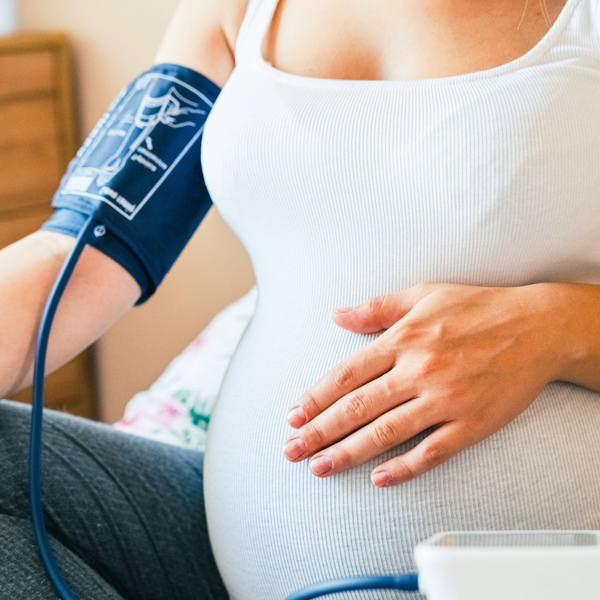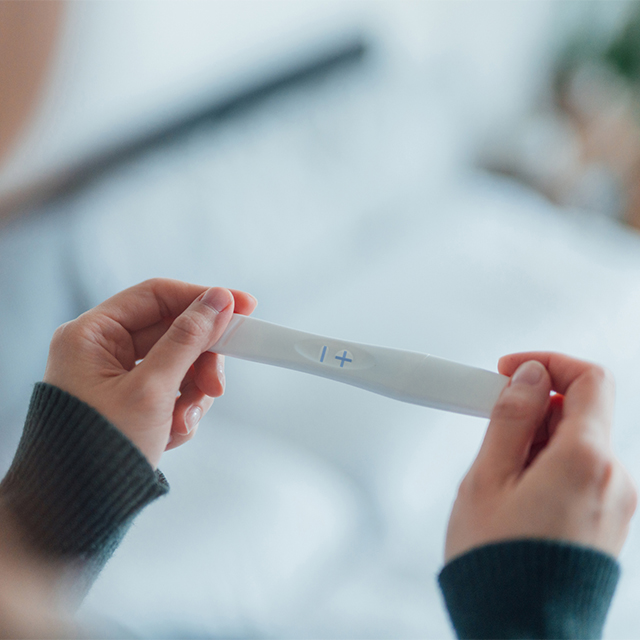It’s important to see a doctor as soon you might be pregnant to begin assessing the risks of hypertension.
It’s a common medical issue during pregnancy — hypertension, or high blood pressure — and it’s become more common during the last two decades. Hypertensive disorders affect 5-10% of pregnancies worldwide, and can cause problems both during and after delivery — and for years to come.
“These disorders are extremely important as they can cause serious problems for both the mother and the baby if left undiagnosed and untreated,” said Dr. Luke Gatta, a high-risk pregnancy specialist with Vanderbilt Women’s Health. High blood pressure during pregnancy can affect the blood flow to the placenta and increase the risk of placental abruption, intrauterine growth restriction and premature delivery. It can also cause injury to the mother’s organs, and can be life-threatening.
“The good news,” Gatta said, “is that these disorders are treatable to keep mom and baby safe.”
What are the types of hypertension in pregnancy?
“There are several categories of high blood pressure disorders, which depend on the timing of diagnosis and the severity of the associated signs and symptoms,” Gatta said. These include:
Chronic Hypertension: Women with preexisting hypertension who become pregnant or women who have elevated blood pressure (higher than 140/90) before 20 weeks gestation are placed in this category. Sometimes, these patients are already on blood pressure medications before pregnancy.
Gestational Hypertension: This is hypertension diagnosed after 20 weeks of pregnancy in a patient who did not have high blood pressure before pregnancy.
Preeclampsia: This serious hypertensive disorder occurs in about 8% of pregnant women. It normally happens after 20 weeks gestation and is diagnosed in women with persistently elevated blood pressures and protein in their urine, changes in laboratory values, or symptoms such as a severe, unrelenting headache, visual changes and upper abdominal pain.
What are the risk factors for hypertension in pregnancy?
“If you have pre-existing hypertension or a family history of high blood pressure or preeclampsia, you may be at risk,” Gatta said. Other risk factors include being older than 35 years of age or younger than 20; being pregnant for the first time or carrying twins; being obese or having a BMI over 30; or having a pre-existing condition such as chronic kidney disease, lupus or diabetes.
What happens if I am diagnosed with high blood pressure during pregnancy?
Particularly with chronic hypertension, pregnancy-safe medications to lower your blood pressure will likely be started if your blood pressure readings are consistently above 150/100. “This is to help prevent kidney, heart and other organ damage for the mother,” Gatta said. “However, high blood pressure can also affect the growth of the fetus, so regularly scheduled ultrasounds are performed, as well as increased testing of the well-being of the baby later in pregnancy.” Your doctor may also check your bloodwork over the course of the pregnancy.
How is preeclampsia treated?
“Preeclampsia can develop gradually or come on quite suddenly,” Gatta said, noting there are both mild and severe forms of preeclampsia, depending on the severity of the signs and symptoms. “The only cure for preeclampsia is delivery of the baby, and specifically the placenta. Women with severe preeclampsia are at higher risk for developing seizures known as eclampsia; these women usually receive magnesium sulfate during labor as well as 24 hours after delivery to decrease the chance of seizures.”
What can be done to prevent preeclampsia?
“While all pregnant patients should lead healthy lifestyles, it is even more important for patients with high blood pressure,” Gatta said. Continue to eat a healthy diet (decrease the amount of fried foods and processed food and increase your veggies, whole grains and lean meat), limit your sodium intake and exercise regularly. Try to build relaxing breaks into your day to reduce stress and fatigue while pregnant.
What can I do to monitor for preeclampsia?
“Patient empowerment is key,” Gatta said. He recommends keeping a blood pressure cuff at home to monitor for blood pressure; your goal blood pressure numbers are generally below 140/90. Your doctor may talk with you about taking a baby aspirin daily, which can reduce the risk of developing preeclampsia. Keep all of your prenatal appointments (including ultrasounds and antenatal testing). If you need medication to control your blood pressure, your doctor can prescribe the safest medication, and you will need to take the medication exactly as prescribed.
If I have newly diagnosed hypertension this pregnancy, can I have it in future pregnancies?
“In cases of chronic hypertension, patients can have at least a 20% risk for developing preeclampsia during the current pregnancy,” Gatta said. “A history of prior preeclampsia can bring a 25-30% increased risk of having preeclampsia in a next pregnancy.” If you have experienced preeclampsia, your doctor will typically start you on a low dose of aspirin during the second trimester of your next pregnancy.

Personalized Care for Women
Vanderbilt Women’s Health cares for women at all stages of life, from annual examinations to pregnancy and delivery to post-menopause. No matter the stage of life, Vanderbilt Women’s is committed to caring for each patient’s unique needs with compassion and expertise with locations throughout Middle and Southern Tennessee.




